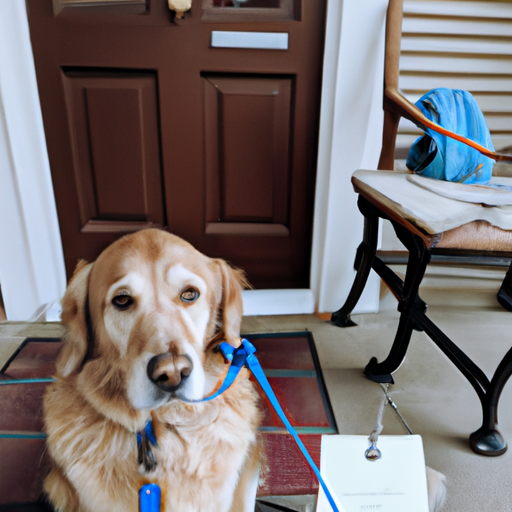As a caregiver, you’re most likely familiar with the look your dog gives you when it’s time for you to leave the house. Those puppy dog eyes, that droopy tail – it’s enough to break your heart. You may be wondering: do dogs get sad when their owners leave? This piece will delve into this topic, providing you with all the knowledge you need to better understand your furry friend’s emotions.
H2: Understanding Your Dog’s Emotions
Dogs are capable of a range of emotions, much like humans. They can experience joy, fear, anger, and yes, even sadness. When you leave, your dog may feel a sense of sadness or anxiety. This is often referred to as separation anxiety. It’s crucial to understand that while dogs do not possess the same complex emotional reasoning as humans, they do react to environmental changes and stimuli.
Here are some common signs of sadness or anxiety in dogs:
- Excessive barking or whining when you’re about to leave
- Destructive behavior (chewing on furniture, digging, etc.)
- Pacing or restlessness
- Changes in appetite
- Changes in sleep patterns
H2: The Root Cause: Separation Anxiety in Dogs
Separation anxiety is a serious condition that affects many dogs, especially those who have been adopted from shelters or have a past traumatic experience. It’s characterized by signs of distress when the dog is left alone or separated from their owners.
| Common Signs of Separation Anxiety | Description |
|---|---|
| Destructive Behavior | This can include chewing on furniture, doors, or shoes, and it typically occurs within 30 minutes of the owner’s departure. |
| Urinating or Defecating | Some dogs may urinate or defecate in the house when they’re left alone, even if they’re house-trained. |
| Excessive Barking or Howling | This usually starts shortly after the owner leaves and continues for long periods. |
H2: How to Help Your Dog Cope
Fortunately, there are several strategies you can use to help your dog cope with separation anxiety or sadness:
- Gradual Desensitization: Start by leaving your dog alone for short periods and gradually increase the duration. This can help your dog get used to being alone.
- Positive Reinforcement: Reward your dog with treats and praise for calm behavior. Avoid punishing your dog for anxiety-related behavior as it can increase their stress levels.
- Create a Safe Space: This could be a specific room or a crate where your dog feels safe and comfortable. Leave comforting toys or items of your clothing that carry your scent.
- Consult a Professional: If your dog’s separation anxiety is severe, it may be best to consult a professional dog trainer or a veterinary behaviorist.
H2: The Importance of Mental Stimulation
Just like humans, dogs need mental stimulation to stay happy and healthy. This is especially important for dogs who spend a lot of time alone. Boredom can exacerbate feelings of sadness or anxiety.
Consider these strategies for providing mental stimulation:
- Interactive Toys: These can keep your dog occupied and mentally engaged for hours.
- Regular Exercise: A tired dog is a happy dog. Regular exercise can help to alleviate anxiety and boredom.
- Training Sessions: Regular training sessions not only provide mental stimulation but also strengthen the bond between you and your dog.
FAQ
Q: Can dogs cry when they’re sad?
A: While dogs have tear ducts and can produce tears, they don’t cry emotional tears like humans do. If your dog’s eyes are watering excessively, it could be a sign of an eye problem and you should consult your vet.
Q: How long does it take for a dog to forget their owner?
A: Dogs have a good memory and can remember their owners for years. However, the length of time can vary depending on the dog and the bond they had with the owner.
Q: What are some signs that my dog misses me?
A: Signs that your dog misses you can include excessive barking or whining, destructive behavior, changes in appetite or sleep patterns, and depression.
Q: Can dogs sense when their owners are sad?
A: Yes, many dogs are sensitive to their owner’s emotions and may react by becoming more subdued or trying to comfort their owner.
Q: Do dogs get depressed?
A: Yes, dogs can experience a form of depression. If your dog is showing signs such as loss of appetite, changes in sleep patterns, or a lack of interest in activities they usually enjoy, it’s important to consult your vet.
Remember, as a caregiver, it’s essential to be attentive to the emotional needs of your pet. By understanding their behaviors and providing them with the necessary support, you can ensure their well-being even when you have to be away.



